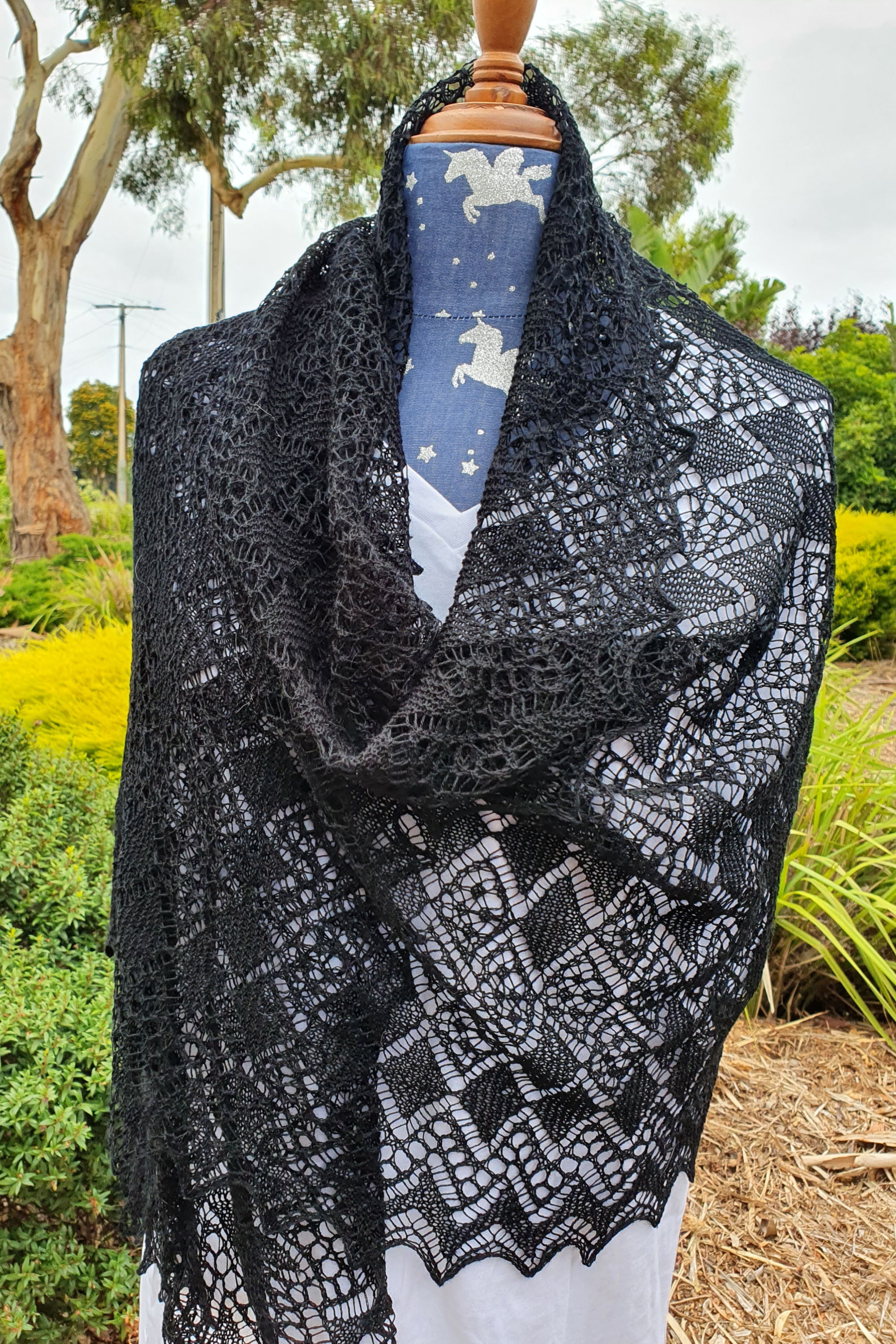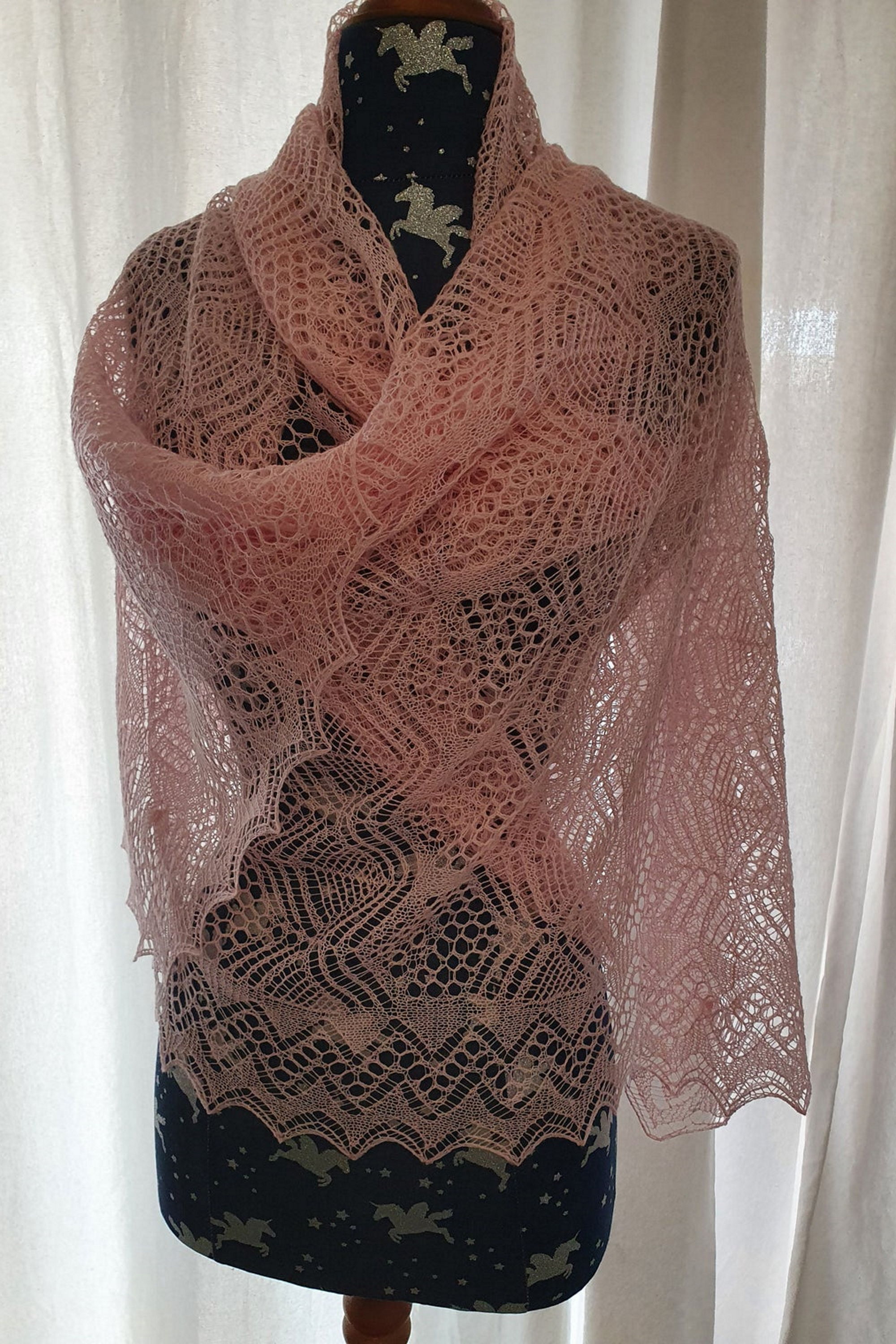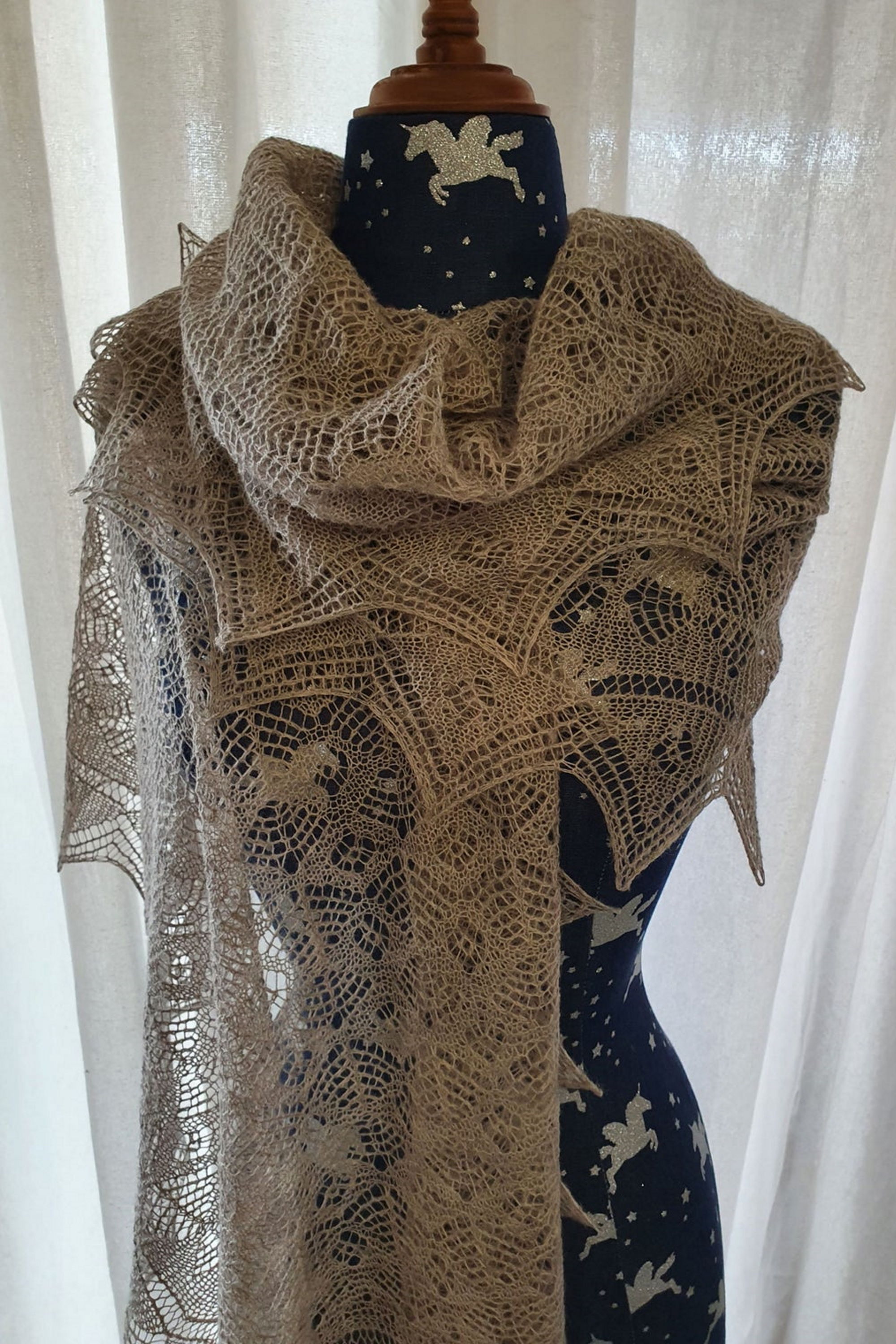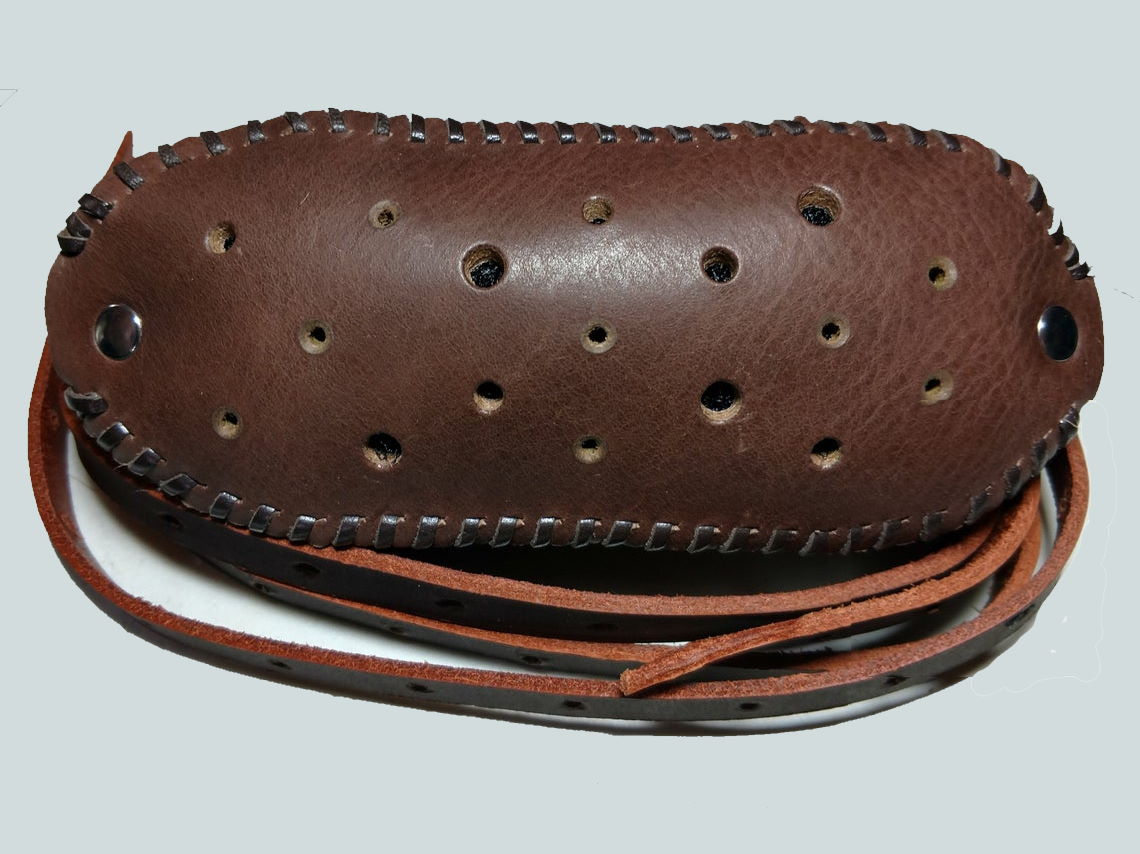Shetland Knitting & Shetland Knitters
- Home
- Summary of Knitting Techniques
- Shetland Knitting
Quick Links
- Archived - Ask a Knitting Question
- Basic Knitting Stitches
- Beginner Knitting Patterns
- Knitting Abbreviations
- Needle Sizes Chart
- Tension Squares
- Yarn Comparison Chart
FYI: This site receives a small amount in commissions from affiliate links and third-party advertising.
Over the last year or so I have developed a real love for Shetland Knitting, not just because it is a part of my heritage but also because I love the simple beauty of lace worked on a garter stitch base.
I have always preferred fine yarns but in the past I have limited my finer work to using 4 ply for women's jumpers and knitting baby shawls in 2 or 3 ply. Most of the fine Shetland Lace Knitting is done using cobweb or lace weight yarns and although it takes a while to get used to working with very fine yarns and a lot of practice to get a decent results, the struggle is well worth it.
I have always been curious about this style of knitting given that my Grandfather was born on one of the Shetland Isles and I love the idea that you can make a shawl so fine that it will pass through a wedding band.
Very fine wools (I prefer natural fibres) is relatively hard to find in Australia, most of the yarns I use for my knitting have to come from overseas. Mainly the UK or Italy but I have also bought lace weight wool from a couple of ladies in the Ukraine. Years ago, before I went back to work full time I spent some time spinning my own very fine wool but for the last twenty years or so I haven't really had the time.
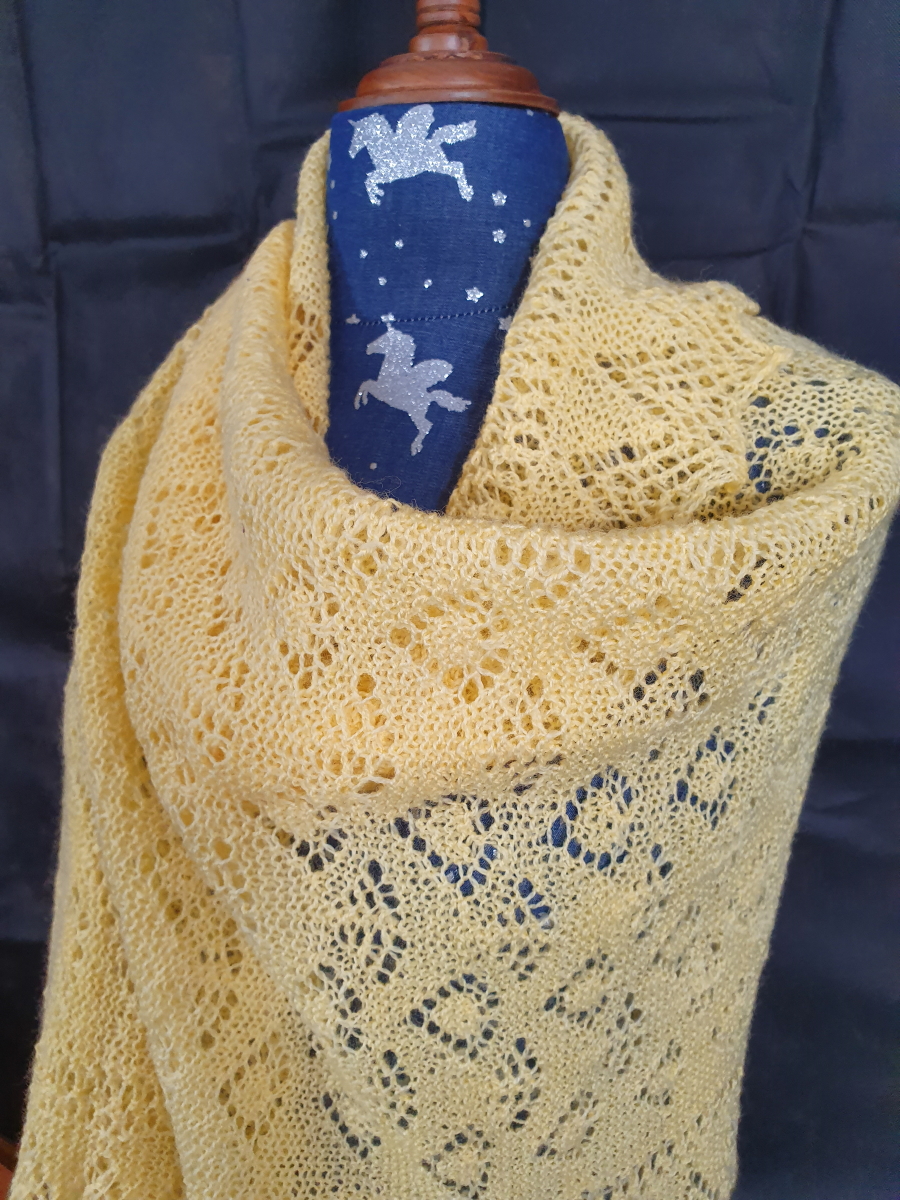

I started knitting stoles and wraps using Shetland fine lace patterns I found on ETSY and Ravelry, starting with 2 ply wool from Bendigo Woollen Mills. After I had made a few I tried my hand with cobweb weight wool and now I have graduated to creating and knitting my own designs.
Check out a few of the Shetland Knitting I have done recently...
Shetland Knitting - Fine Lace
This style of knitting in the Shetlands is worked using the finest, softest parts of the fleece from Shetland sheep. The work is generally done on a garter stitch base and comprises of a combination of traditional motifs. Knitting was an important cottage industry in the Shetland Isles and contributed well deserved and necessary income for many families during the 1800's and early 1900's.
In the past Shetland knitters would knit from memory - no written patterns, and the knitting tradition was passed down from one generation to the next. Part way through the last century a new generation of knitters began to produce written or charted patterns which enabled designs to be shared with the rest of us.
A couple of other features of Shetland Knitting stand out - the speed at which Shetland knitters can work their needles and their ability to knit while moving around.
Fast Knitting
Listen to Lorna Jenkin explain how fast the Shetland knitters could knit up to 200 stitches a minute. To be honest I wish I could knit this fast but as she explains, the only way to get this fast is to learn the techniques very young and practice your skills every day of you life.
Did you notice the woman who was knitting as she walked? So cool. To make it possible to knit on the move at a decent speed, you might like to try a knitting belt, knitting stick or a sheath.
Knitting on the Move
Knitting Belts, sticks or sheaths all work on the same principle. Basically the right hand needle is held in place by the belt, stick or sheath so that you don't need to work that needle and it also takes most of the weight of your knitting which makes it much easier to move around with your knitting.
Couldn't Find What You Were Looking for?
Try searching the site using the search box below:


Recent Articles
-
Shetland Knitting and Shetland Knitters
Feb 07, 21 07:44 AM
Shetland knitting and the women in the Shetland Isle who create Shetland lace are among the best knitters in the world. -
Fixing Knitting Mistakes
Jan 28, 21 02:35 AM
When you are learning how to knit, you are going to make a few mistakes. It might not make you happy but fixing knitting mistakes is par for the course. -
Shetland Lace Knitting
Dec 11, 19 07:03 PM
Shetland Lace Knitting is a particular style of knitting that developed in the Shetland Islands and was one of the main exports of the Island early in the last century.
 >
>